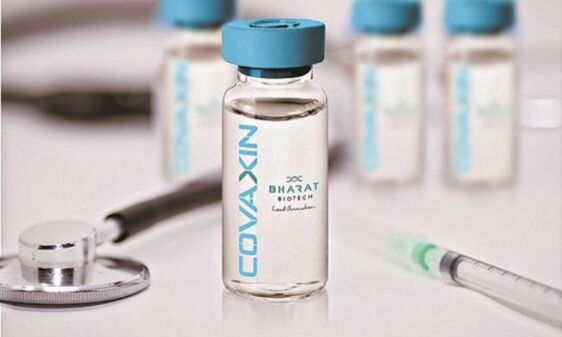A well-timed move

Taking India an inch closer to its goal of vaccinating its entire population in the near future, the subject expert committee (SEC) of Central Drugs Standards Control Organization (CDSCO) has approved the use of India's homegrown vaccine — Covaxin — for children aged 2-18 years. India has thus far vaccinated 29 per cent of its adult population, and now appears to be turning towards children. The infection rate for children had risen from four per cent during the first wave to 10-15 per cent during the second wave. Though children are not the prime targets of the COVID-19 pandemic, vaccination will ensure a safety valve for them. The significance of the SEC recommendation can be seen in several contexts. Firstly, the schools have started re-opening in the physical mode across the country. A safety back-up becomes pertinent at this stage as children are being continuously exposed to a crowded environment on a daily basis for long hours. Secondly, the disease caused by the Coronavirus among children is of mild nature, but the post-disease complications have been found quite disturbing. Thirdly, the unpredictability of the virus in terms of mutation leaves no scope for surety of safety of any age group. We have seen it breaking perceived age barriers during the second wave. A ready apparatus for vaccinating children will lend confidence and surety to India's vaccination drive and the fight against Covid. India's case for vaccinating its entire population — including children — has been enhanced with SEC approval of Covaxin. Currently, India has two vaccines — Covaxin and Zydus Cadila — in its kitty to be used for children. Zydus Cadila vaccine was granted emergency use authorization in August this year but is yet to hit the market. A couple of more vaccines for children — including Serum Institute's Novavax and Biological E's Corbevax — have also been allowed to conduct phase-II and phase-III trials. While Covavax is meant for children aged 2-17, Corbevax is meant for the age group 5-18. In totality, SEC's approval of Covaxin for children is a case of universal vaccination made stronger for India. Though the efficacy and safety of the Covaxin, as found in clinical trials, is at par with that for adults (78 per cent), there is still the need to adopt caution and move steadily rather than hurriedly. Covaxin's approval is a breakthrough move as the age group it seeks to cover is very tender and vulnerable. Each possible risk will have to be averted through a rational risk-benefit analysis. Vaccination drives must necessarily be kept away from the sentiments of national pride and the spirit of record breaking. Discourse around vaccine development has to be crudely on scientific and treatment lines. A very plain and simple fact is that vaccines are made for safety and not glory. Furthermore, much of the safety attributes and findings around Covaxin use for children have not been in the public domain in India. A lot will depend on WHO's decision on emergency use authorization of the vaccine which is expected to come later this month. WHO's authorization, if it comes, will be an indication of an added layer of safety standards. WHO's nod will also go a long way in allowing Covaxin to have a global outreach — extending its market manifolds. Coincided with SEC's emergency use authorization for age-group 2-18, this will take India's homegrown vaccine to a next level as the vaccination of children globally is not so normalized a phenomenon. Even countries like Israel — known for record-breaking vaccination across various age groups — have been quite wary in going about vaccinating children below the age of 12 years. It won't be wrong to say that for the Indian vaccine producer, the responsibilities have become as big as the potential benefits appear. Apart from the harsh phase during the second wave of the pandemic, India's vaccination journey has been quite impressive. The country recovered decently well in terms of vaccination after it was battered by the second wave of the pandemic. And now, it is again set to make a timely move as the schools in India, as well as abroad, are re-opening. Given its high credibility in the medicine sector, India can certainly be expected to safeguard its children, and then those from countries the world over, but with great caution and planning.



